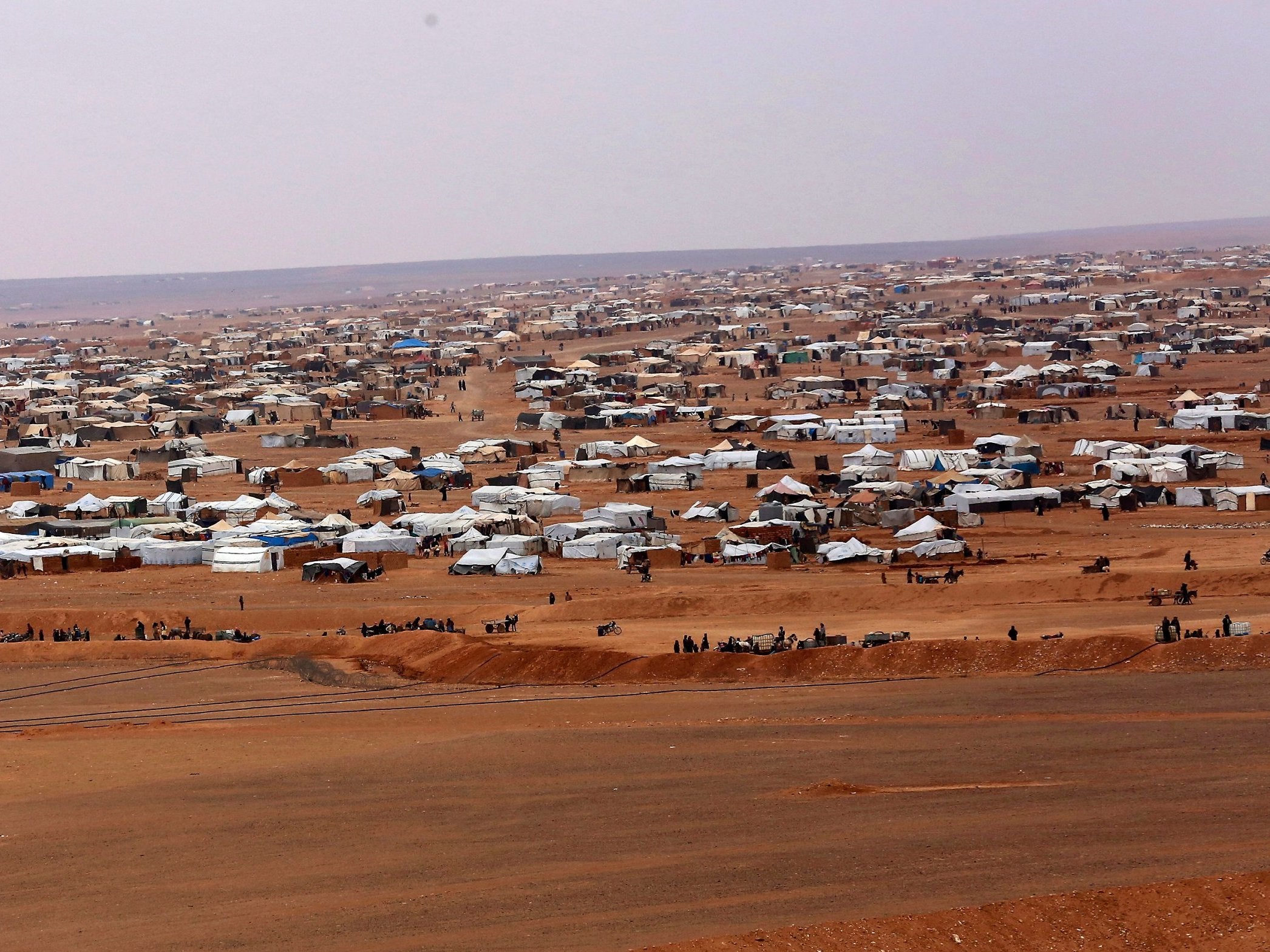Two babies die at Syrian border camp as UN warns 45,000 lives are at risk
Rukban camp has only received two aid deliveries this year.

Your support helps us to tell the story
From reproductive rights to climate change to Big Tech, The Independent is on the ground when the story is developing. Whether it's investigating the financials of Elon Musk's pro-Trump PAC or producing our latest documentary, 'The A Word', which shines a light on the American women fighting for reproductive rights, we know how important it is to parse out the facts from the messaging.
At such a critical moment in US history, we need reporters on the ground. Your donation allows us to keep sending journalists to speak to both sides of the story.
The Independent is trusted by Americans across the entire political spectrum. And unlike many other quality news outlets, we choose not to lock Americans out of our reporting and analysis with paywalls. We believe quality journalism should be available to everyone, paid for by those who can afford it.
Your support makes all the difference.Two babies have died in the past week at a camp for displaced people in southern Syria, where tens of thousands have been cut off from vital food supplies and medical care.
The exact cause of the deaths of the babies is unknown, but the UN children’s agency said they fell ill due to the “harsh conditions” in the desert camp as winter approaches.
“Freezing temperatures and lack of supplies, including basic commodities, threaten the lives of nearly 45,000 people – among them children – leaving them at the risk of disease and death,” said Geert Cappelaere, Unicef’s Middle East and North Africa director.
Rukban camp, on the border between Syria and Jordan, lies in an area ostensibly controlled by the US military, which operates a base nearby. But access on the ground is blocked by Jordan on one side and Syrian government forces on the other. Complicating things even further, are a number of armed factions operating inside, which has made securing aid deliveries extremely difficult.
Jordan closed access to aid deliveries in 2016 following a deadly cross-border attack launched from the camp, and suspects Isis sleeper cells are still present there.
Until recently, the camp’s residents had only been surviving on food smuggled in overground from other parts of Syria, but the Syrian army closed off those routes in October, making an already dire situation worse.
As well as a lack of food supplies, the camp suffers from poor sanitary conditions and lack of access to proper healthcare. Many residents are suffering from skin diseases, respiratory illnesses and diarrhoea. Only severe cases are granted permission by Jordan to seek medical care at a UN clinic on the border.
The camp received its first delivery of aid since January last month, but basic supplies are already dwindling and no firm agreement on how to deliver aid has been reached.
Prior to that aid delivery, activists said a dozen people had died of malnutrition and lack of access to healthcare. Among the victims were a five-day-old boy and a four-month-old girl who were unable to enter Jordan to reach a hospital, according to Unicef.
Mr Cappelaere called for “all sides concerned to facilitate humanitarian access to reach all children in need in Rukban” on Thursday.
Join our commenting forum
Join thought-provoking conversations, follow other Independent readers and see their replies
Comments